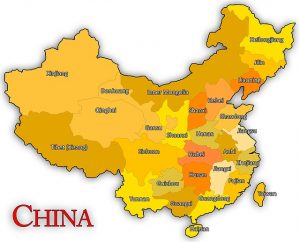

5 Ways to Improve Your Chinese Website Performance and Speed
Companies can speed up and improve the Chinese Website Performance to ensure a smooth and fast loading time for visitors. Page speed matters, especially if you want to generate traffic and convert visits into clicks and buy-ins of products and services. One out of four visitors will abandon the site if it loads more than four seconds.
Chinese websites are not built the same. Some are lightning-fast, while others may take a few seconds to show all the content on the homepage. If you’re experiencing the latter, then look no further. Here are five ways to increase your Chinese site. Make sure you bookmark this article for your reference.
Assess your website speed and conduct a few tests
First things first, you must conduct a speed test to determine the current speed of your site. While Google Speed tests provide data for foreign-hosted sites, you should use speed testers that support Chinese cities for accurate results. Remember, your visitors are likely located in Mainland.
Ping lets you test a web page’s speed from different servers worldwide, including Beijing, Shanghai, and Guangzhou. Aside from that, you can use Site 24×7 and choose Chinese cities like Guangzhou, Beijing, Hangzhou, to name a few. GTMetrix, Website Pulse are other options in which you can set Chinese cities for speed test.

Get an ICP license for the Chinese domain and hosting
Suppose you want to get a Chinese domain and hosting. Take note of this — China’s MIIT or Ministry of Industry and Information Technology is in charge of managing the licensing of bei an license for domestic and foreign companies that wish to register an internet domain in China such as dot-cn.’
Acquiring a bei an license may take about three to six months upon application. The shortest is one to two months. The best way to expedite the process is to work with a native Chinese speaker who’s expert in handling this task.
While having an ICP license isn’t mandatory for overseas companies to display and run a China website, those who want to register a domain with dot-cn and acquire a local hosting should have one. Local hosting companies will require you to have this before they offer you services. You can still host your site nearby, like Hong Kong, Macau, and Singapore, which convenient and accessible for you. But of course, the performance of the site is still affected.
Go for local hosting to avoid getting blocked by China’s internet firewall
Having your site hosted locally will impact your site’s performance. One of the benefits you get when you go for local hosting is that you save a few milliseconds on domain name lookup — the process where you send a request to the DNS — because the server is based in Mainland.
Another thing, because there’s only a short distance from the server and the site to your customers, you can reside within China’s internet firewall. China blocks websites that are often hosted overseas, but visitors can access them anytime and without hiccups when you’re within the firewall.
Lastly, it’s better to have your dedicated hosting based in Mainland instead of shared hosting. In case one of the site’s IP address that is hosted in the shared environment gets blocked, which your site is also hosted, then it’s likely that your site will be affected.
Use CDN and explore local data centers to improve your site’s speed
To speed up the site’s performance, you can work with CDN or content delivery network companies to deliver content faster to your visitors. These companies own several data centers, both local and outside of China, and they collaborate with Chinese ministries like MIIT to speed up the approval process.
When you work with CDN companies, they do the heavy lifting for you since they already have the technology and have control over their data centers. You reduce the bandwidth costs and improve the page loading time of your site.
Always be on the know about China internet and cybersecurity policies
Last but not least, make sure that your website adheres to the China internet and cybersecurity policies. If you publish content regularly, you should check any keywords or phrases that are possibly flagged on China internet. Work with a native Chinese writer and translator for quality control.
If you’re after Baidu rankings, know what products and services are allowed to be sold online and also that are allowed for advertisements. Overall, it’s best to work with a company that knows the business development aspects and the technical know-how in running a localized Chinese website.
Let the LIMPID team know how they can better serve and help you with your Chinese website.
 +1-877-574-2407 (US and Canada Toll Free)
+1-877-574-2407 (US and Canada Toll Free)  service@limpid-translations.com
service@limpid-translations.com




